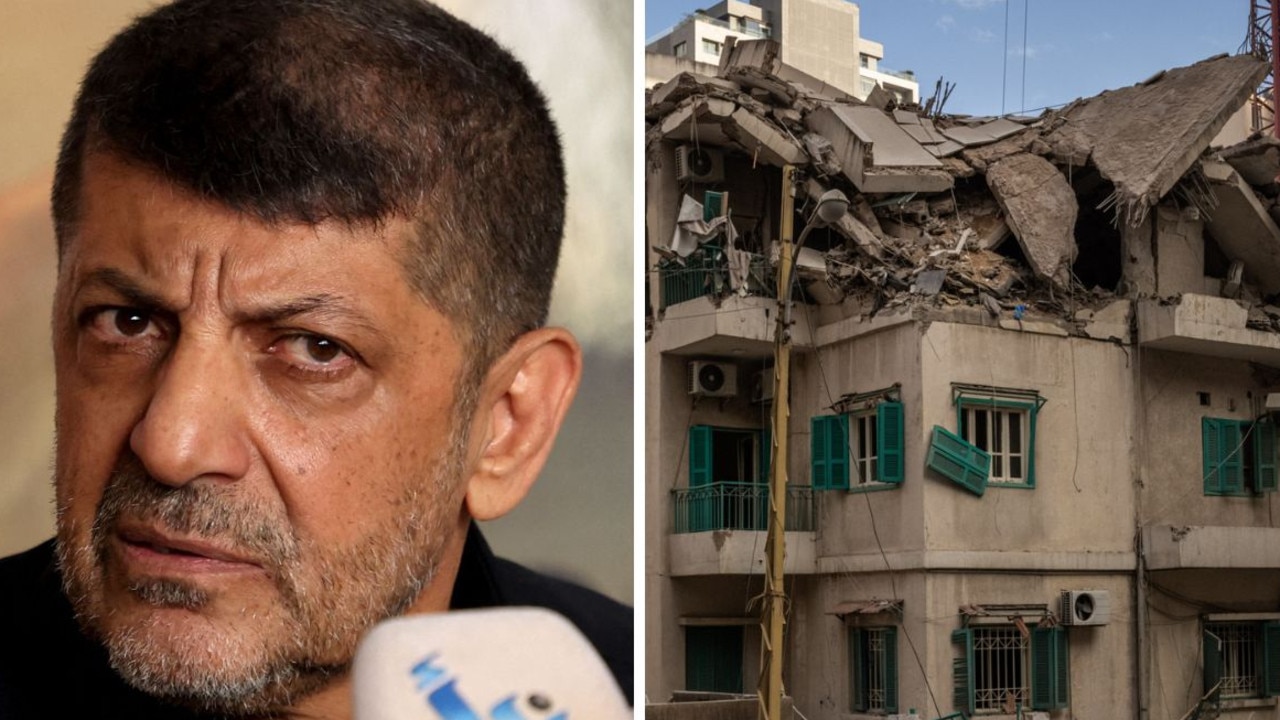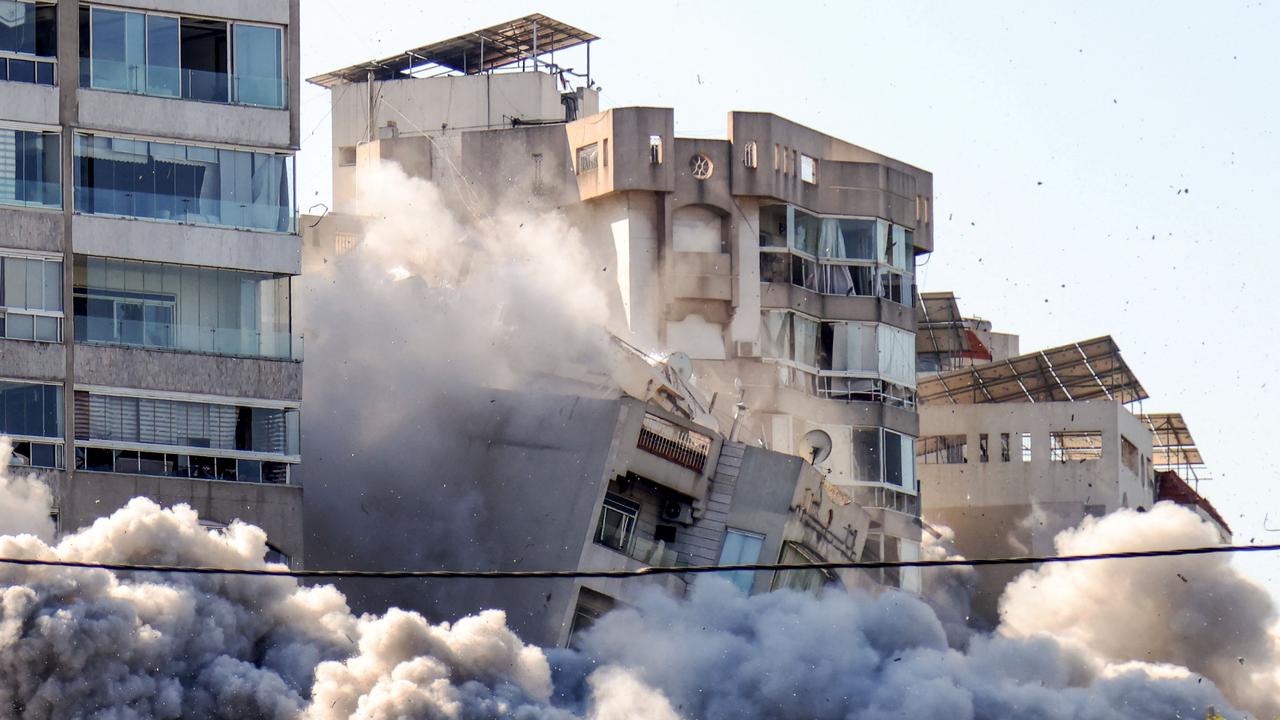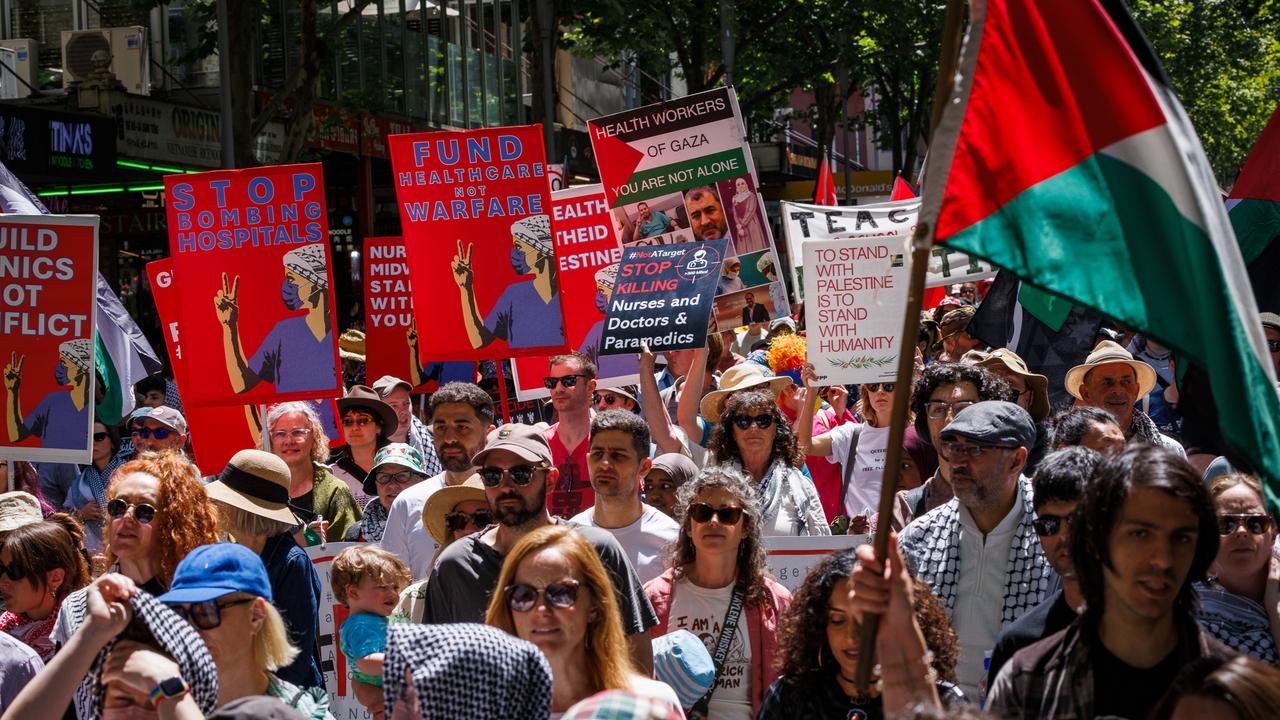Hamas attack on Israel could lead to World War Three and ‘human annihilation’, experts warn
In a truly terrifying prospect some analysts predict the Israel-Hamas war could envelop countries well beyond the Middle East.
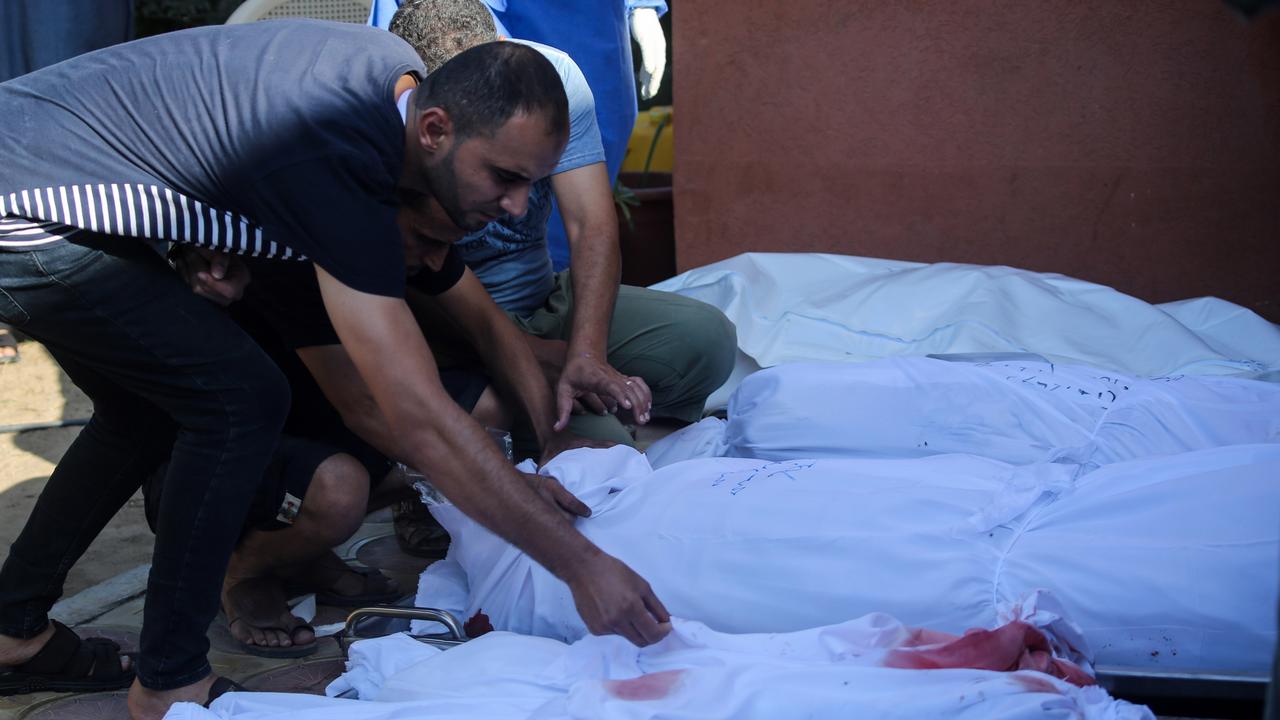
With thousands dead and major global powers flying into Israel, analysts are now predicting the Israel-Hamas war could develop into World War Three.
Experts tell news.com.au that this worst-case scenario would likely see the conflict envelop China, Russia and the United States.
The bloody war has so far left more than 1400 dead in Israel and more than 3785 Palestinians killed in retaliatory strikes.
Israel now appears to be on the brink of launching a ground invasion of the Gaza Strip with Defense Minister Yoav Gallant saying in a fiery speech there would be “no forgiveness” for the attacks on Israel, “only total annihilation of Hamas organisation”.
Historian Niall Ferguson wrote in The Times that the situation had an “unpleasant 1930s feel”, asking: “Will there be a World War Three?”.
“If Israel finds it cannot contend with a three-front war in Gaza, the West Bank and Lebanon, and turns to the United States for military help against Iran, we shall have reached one of history’s hinges,” he wrote starkly.
“The future of the world will turn on it.”
Global order is collapsing - could lead to ‘annihilation’
Historian Yuval Noah Harari has warned that the Covid-19 pandemic, the Ukraine war and now the Israel-Hamas war points towards increasing geo-political chaos.
“Generally, order is collapsing and is being replaced by chaos,” he told NDTV.
“This has been happening for the past five to 10 years. We see it in more and more places now. The (Covid) pandemic was a part of it. The Russian invasion of Ukraine is also a part of it.”
“What’s happening now in Israel and Palestine is a part of it.”
Noted as one of the world’s leading scholars, Mr Harari warned that order needed to be rebuilt - or the situation would only further detetioriate.
“It will spread all over the world”, he said.
“It could lead to Third World War. And with the type of weapons and technology now available, it could lead to the annihilation of humankind itself.”
‘Not in isolation’
While the Israel-Hamas war may seem far away, national security lecturer at Charles Sturt University Dr Levi West told news.com.au that the conflict could have major global repercussions.
“What happened doesn’t just happen in isolation,” he warned.
“It happens in the context of Iranian sponsorship of Hamas, Russia’s close relationship with Iran over weapons and in the context of broader US-Russia-China competition and geopolitics.”

In the last week alone both China and Russia have hardened their positions against Israel, in what appears to be a direct attempt to undermine the US.
Chinese foreign minister Wang Yi said Israel’s bombings had gone “beyond the scope of self-defence” and that it “should stop collective punishment of the people of Gaza”.
Meanwhile, Russia appears to have little interest in solving the crisis.
US Foreign policy expert Josh Rogin wrote in The Washington Post that Russia’s main foreign policy goal now appears to be to “distract the world from its ongoing invasion and atrocities in Ukraine”.
“Specifically Moscow is pushing for US military assistance to Ukraine to end… the crisis in Israel aids these efforts,” he wrote.
“Russia has stepped up its support for Hamas diplomatically and in the propaganda war; it’s also seizing the opportunity to ramp up its violence in Ukraine, while the world is distracted.”
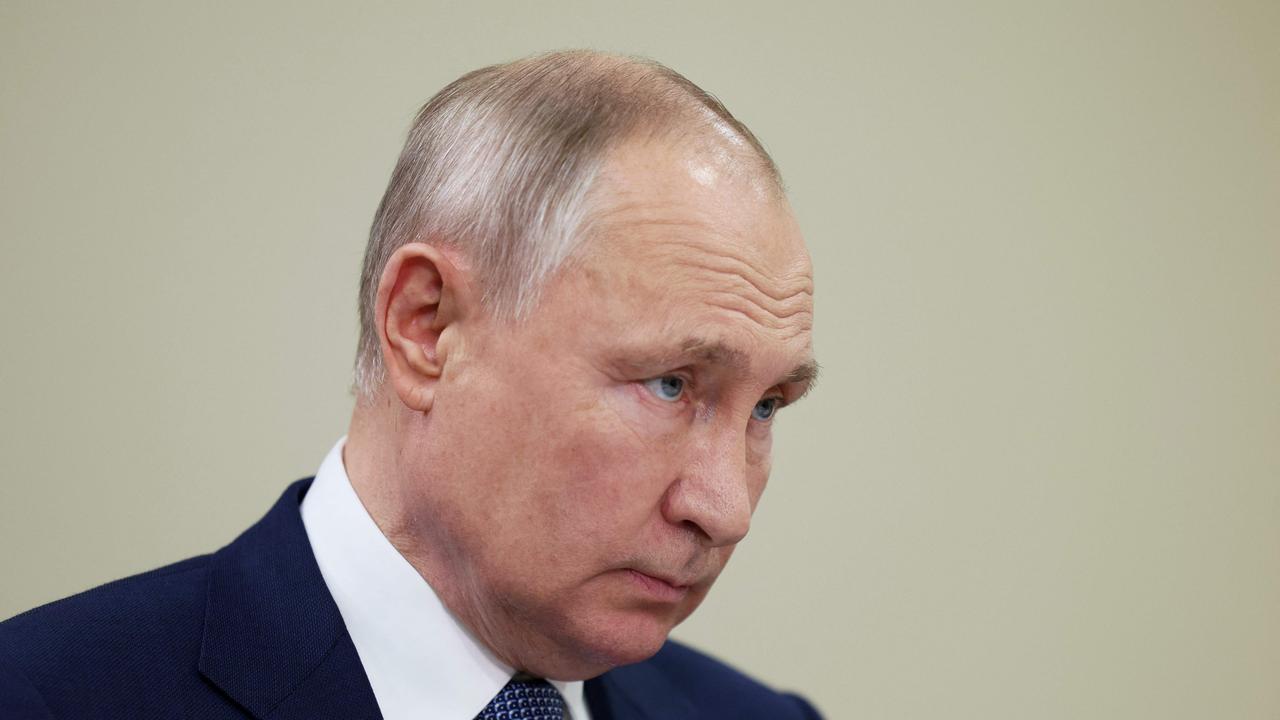
Research scholar at the Centre of Arab and Islamic Studies at ANU Ian Parmeter told news.com.au that Russia’s growing strategic relationship with Iran further complicates matters.
“Iran has become an important supplier of ammunition and weapons to Russia, particularly drones in the Ukraine war,” he said.
While Mr Parmeter doubted Russia would directly become involved in the Gaza conflict he said it would be “looking for opportunities to benefit from the situation”.
“The Middle East is a second order priority for Russia. A superpower war is more likely because of a miscalculation by either the US or Russia in Ukraine, which is far more important to Russia than the Middle East.”
Iran a major player in global conflict
What Iran does next could prove the deciding factor.
Many believe Iran was pushing Hamas to act now to undermine the chances of a mega US-Israel-Saudi Arabia deal being sealed that would dramatically tilt the strategic landscape in the Middle East.
Iran appears highly agitated that the region was slipping out of its orbit.
Just days before the Hamas attack, Iran’s supreme leader, Ayatollah Ali Kahmenaei, according to The Economist, warned that countries establishing relations with Israel were putting themselves in harm’s way.
Mr Parmeter said the main country at risk of becoming involved in the conflict with Israel in the short-term is Lebanon.
“Conflict with Israel would be through the Shia militia Hezbollah,” he said.
“Iran controls Hezbollah and supplies it with weapons and training through its Islamic Revolutionary Guard Corps.
“Hezbollah’s leader, Hassan Nasrallah, claims to have some 100,000 fighters. More seriously for Israel, Hezballah is understood to have between 120,000 and 150,000 rockets, which it could fire at Israeli cities.”
“Hezbollah won’t become involved unless Iran directs it to.”
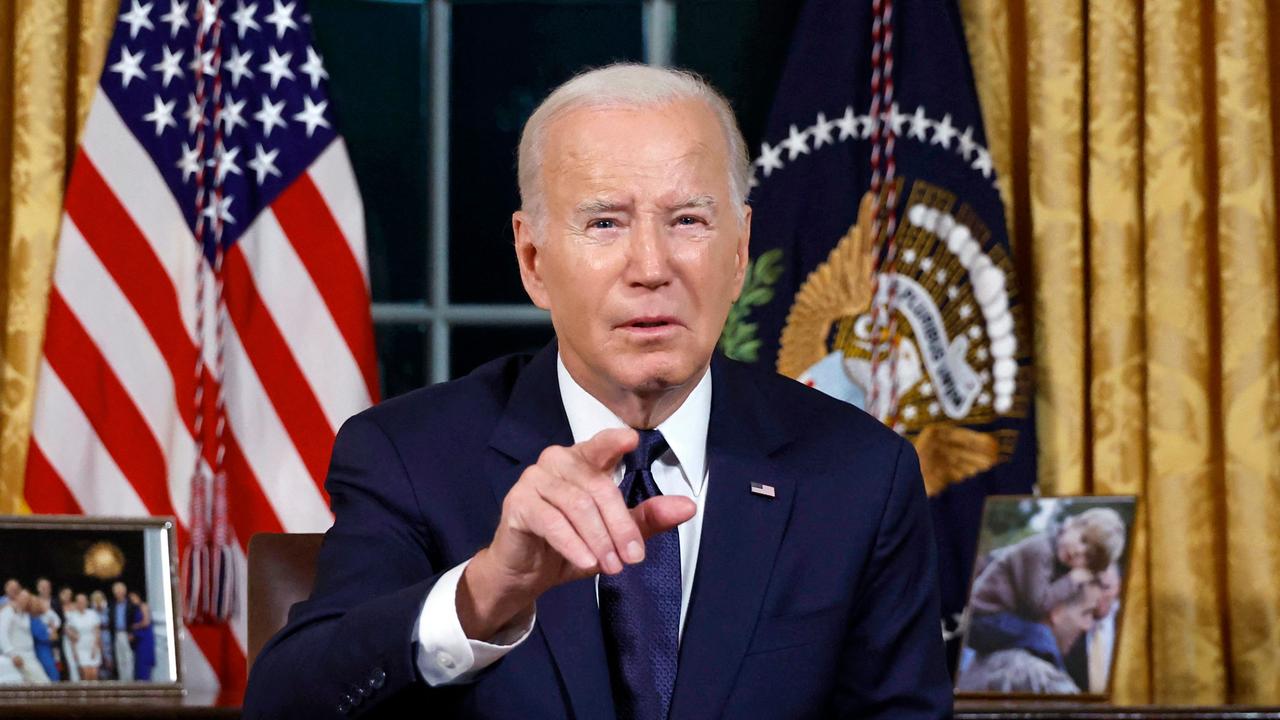
US ‘appeasement lite’ strategy
And if Israel cannot hold off Hezbollah it may call on the US on the ground.
While the US may be reluctant to send troops it could be left with no choice.
As Niall Ferguson noted there are some “powerful economic and political forces steering the US towards a kind of ‘appeasement lite’ in particular the perception that US voters care more about their domestic economic situation than about new ‘forever wars’”.
“As has been clear from Joe Biden’s handling of the Russian invasion of Ukraine, nothing worries the US president more that he might inadvertently stumble into a Third World War,” he wrote.
“The irony is of course, that it was appeasement and the failure of deterrence that led the West into the Second World War.”
-with AFP
carla.mascarenhas@news.com.au




